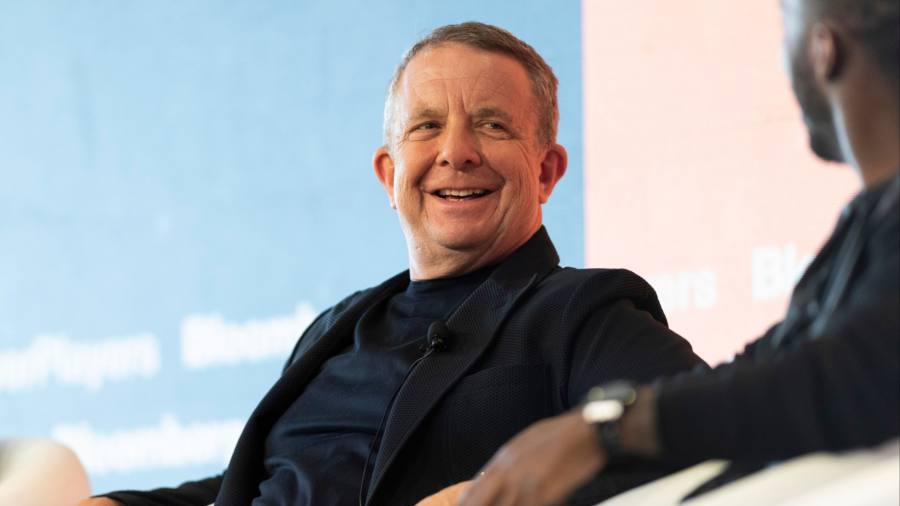
Receive free United Talent Agency Inc updates
We’ll send you a myFT Daily Digest email rounding up the latest United Talent Agency Inc news every morning.
United Talent Agency, one of Hollywood’s top agencies, is seeking to tap into the lucrative football market with plans for new acquisitions after expanding its office in London to act as a hub for its global operations.
UTA chief Jeremy Zimmer said the market for entertainment had become increasingly global given the rise of streaming services that were producing and selling TV and movies in different parts of the world, with the UK now a key focal point for much of its efforts to tap into different parts of the entertainment industry outside the US.
“Streaming has really globalised the business — in the rest of Europe, going into Asia and into Africa, there’s so much happening in terms of culture, media, fashion, music, sports,” he said in an interview with the Financial Times. “This is a great place to be at the centre of what’s happening around the world outside of the US [with] great opportunities to export talent to the US.”
Sports agents have become an integral part of the hugely lucrative football industry, acting as middlemen for transfer and sponsorship deals worth tens of millions of pounds. Zimmer said many of its clients were now interested in moving between different forms of entertainment — such as musicians moving into acting, or sports stars into fashion.
UTA has been on an aggressive acquisition spree in recent years, adding UK literary agency Curtis Brown in London a year ago. Next, Zimmer said, would be a move to boost its business in sports, where it already owns Klutch Sports led by Rich Paul, LeBron James’s agent, which mostly works in the NBA and NFL.
“We’re really looking to do something in sports, particularly in soccer,” said Zimmer, who had just flown into London from Stockholm where he had meetings at EQT, the private equity group that last summer became UTA’s largest minority shareholder. Zimmer and partners still control the firm.
As the agency seeks new revenues in other parts of the entertainment industry, Zimmer admitted that traditional business in Hollywood was going through a period of upheaval given a combination of internal and external “existential” dilemmas at many of the US media groups.
“Every company — some through more self-inflicted wounds, some just due to general market dynamics — has had a really rough adjustment from a stock price point of view,” he said.
“It’s now incumbent on everybody to look at the right balance of streaming, ad sales and selling their product [to rival services]. As people start to get that right, their revenue will go up, their profitability will go up. It’ll be good for the companies, which I think will also be good for our clients,” he added.
This upheaval is not limited to streaming services, Zimmer said, with many of the big studios also “going through their own existential dilemma”.
He said: “Do they go alone, try to merge or be acquired, and what is the right mix of streaming versus other distribution models? Everybody’s kind of trying to figure stuff out right now.”
This was also now affecting how much the actors and professionals employed by these studios were paid “to some degree”, he said.
“If people are making [fewer] shows there’s less work and there’s less upward price pressure,” he said. “As much as that is true, what’s also true is competition for the very best stuff is as fierce as it’s ever been.”